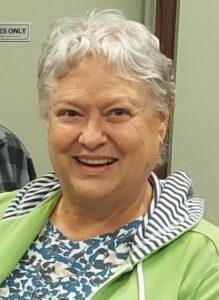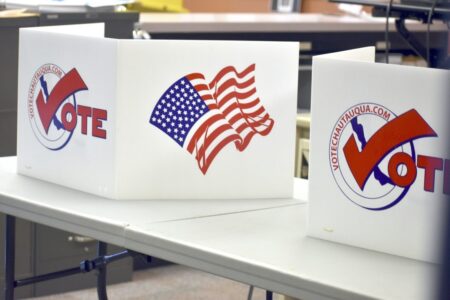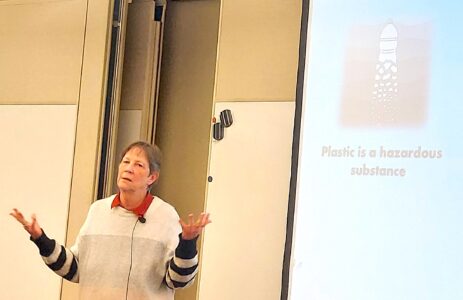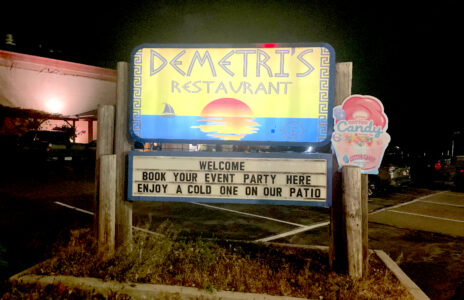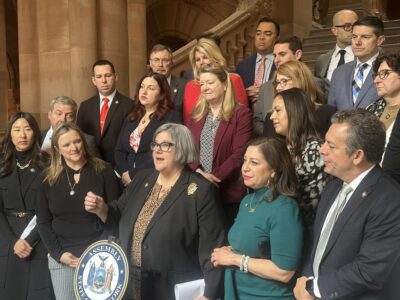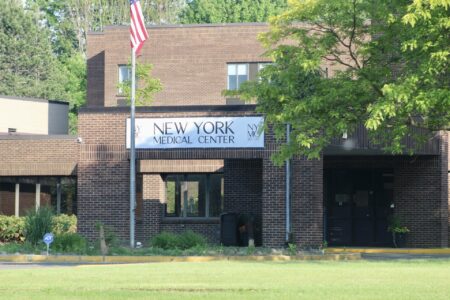Vietnam vet survived war, not the herbicides

FILE - Families visit Section 60 of Arlington National Cemetery, in Arlington, Va., Monday, May 27, 2024, in honor of Memorial Day. (AP Photo/Jacquelyn Martin, File)
It doesn’t seem possible that 45 years have passed since the death of Ed Juteau, Jr. For those who may have forgotten and the generation too young to remember, Juteau was the Vietnam veteran who went to war against his government over the issue of Agent Orange.
While dying of non-Hodgkins Lymphoma, Ed initiated what amounted to a two-man campaign to educate the public about the dangers of Orange, the deadly herbicide sprayed extensively in Vietnam in the misguided belief that destroying the jungle habitat of the enemy would help us win the war. I say two-man campaign because fellow ‘Nam vet and Ranger medic Dennis Thorp was the Sancho Panza to Ed’s Don Quixote.
I first met Ed in the fall of 1979. I had read about his crusade and position, Vice-President of Agent Orange Victims International, and decided to ask him to speak to my Western Civilization classes at HCCC. I had been teaching the latter about the Athenian Greeks’ relationship with their veterans (respect and honor) and thought a comparison with our government might be instructive. I never knew how much that decision would forever change my life and that of my students.
Ed spoke at Harvard of the Hill on a sun-kissed glory day in October before a student-faculty audience of 150. “Hi. I’m Ed Juteau. I died in the war in Vietnam and the government never told me.” From that opening sentence on, Ed not only captured our attention, but our hearts as well. He went on to educate us about the herbicide and its byproduct, one of the most dangerous toxins in the world, dioxin (TCDD). Even though its manufacturers Dow and Monsanto knew of its toxicity, they nevertheless sold it to a government which had bought into the hypothetical belief that it would destroy the enemy’s cover and food supplies to our great advantage (profits and outcomes trump conscience)
Approximately 96 million pounds of undiluted Orange was sprayed between 1965 and 1971. He went on to inform us that, according to the National Veterans Task Force, by the mid- 1970’s, veterans were suffering from a plethora of health problems including: skin conditions (chloracne), fatigue, numbness in the extremities,, vision and/or hearing impairments, respiratory and psychological problems, impotency and cancers. Wives were suffering miscarriages and their children everything from birth defects to cancers. This array of symptoms was strikingly similar to problems experienced by workers exposed to dioxin during industrial accidents. In an effort to get the government to own up to its culpability regarding Orange, Ed and some fellow vets filed disability claims against Uncle Sam . Our government’s singular response — Denied. Since then, the VA has relented and granted some claims; sadly — too late for too many — too many still waiting.
In the few months between that speech and his tragic death on Feb. 3, 1980, shortly after his 30th birthday, Ed and I became close friends. It was in that capacity that my understanding of the words courage, perseverance, dignity and humanitarian became more sharply defined as I watched and listened to this remarkable warrior , stooped over and barely able to walk because of the huge tumor pressing on his spine, time and again addressing audiences on the topic in question. Undaunted by cold receptions and negative reactions from fellow veterans two wars removed, he took inspiration from the small coterie of HCCC students who formed Sav-A-Vet, an organization dedicated to helping Ed realize his dream. He found it particularly ironic that college kids had bought into his message since it had been students with different motives who had lambasted him and his buddies with rotten fruit as they walked off the plane in Oakland.
On a snowy, bitterly cold January evening, fellow supporter, the late Prof. Gary Ruff, Doc Thorp and I carried Ed into a Utica College auditorium for what would prove to be his final speech. Too weak to walk from the hemorrhaging, he nevertheless found the strength to make one last appeal on behalf of his fellow vets and their children. He was never bitter-reacting much more diplomatically than any of us would have. His presence and presentation said it all. The last time I saw Ed was with students Kevin Durkin from the Island and the Lambertson brothers from Oppenheim. He knew it was only a matter of hours. He said goodbye by asking us to carry on in his memory. We pledged that we would and hugged him one last time. And in a final display of his dry wit, he reminded the boys that if they were to truly carry on, some serious haircuts were in order. Said the bald man to the “Hippies.”
In the coming years we did the best that we could. Hundreds of students learned about Ed, joined the cause, and went their separate ways, hopefully better people for the experience. Small victories aside, the war, like the one in Southeast Asia, was lost. Our government the reason in both instances. By the early 1990’s the fires of the Agent Orange movement had become all but extinguished. The government never openly admitted in a manner communicated to all of the American people that it poisoned hundreds of thousands of veterans and through them, their children. There is, however, and always will be some consolation for those of us who fought the war at home. And that is the experience of having known or learned about a man who taught what it truly means to have the courage of one’s convictions. Forty-five years since his death and he remains for me the personification of the word hero.
In a couple of weeks, the Board of Public Works in Little Falls will be voting on a proposal made by a city native, ‘Nam combat vet, former VFW Commander and student of mine, John Frazier. He’s asking for permission to have a stone remembering the victims of Agent Orange and their families and children placed in Eastern Park next to the existing stone honoring Vietnam veterans. Such a remembrance is long overdue. I truly hope that his request is accepted. And somewhere in the great beyond, I know Eddie J. does as well.
A couple of weeks before he died, Ed and I were returning home from St. Elizabeth Hospital and the news he had gotten wasn’t good. During the course of our conversation, I commented on how damn unfair it was that he was about to suffer such a tragic fate. He responded by saying that it wasn’t the length but rather the quality of one’s life that counted. I’ll never forget those words. You shouldn’t either.
I just finished this piece and Josh Groban’s “You Raise Me Up” is playing. How appropriate.
For more info on the topic of Agent Orange, read Fred Wilcox’s “Waiting For An Army To Die.”
Ray Lenarcic is a 1965 State University of New York at Fredonia graduate and is a resident of Herkimer.

